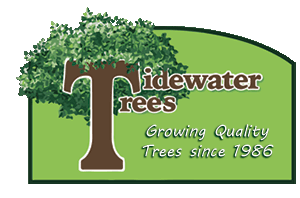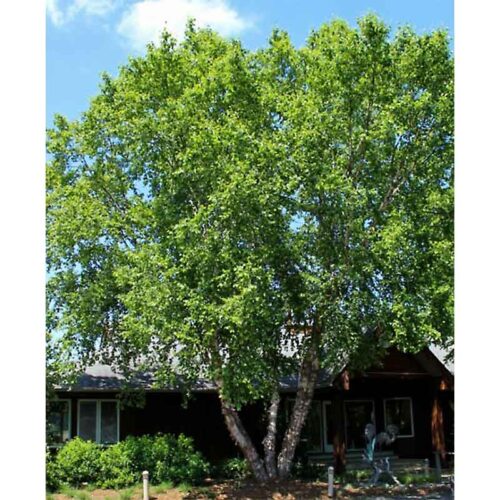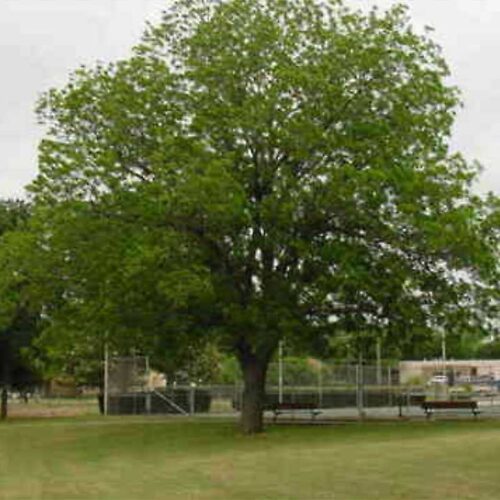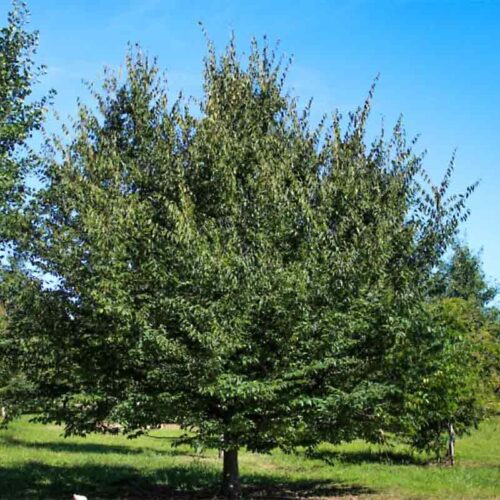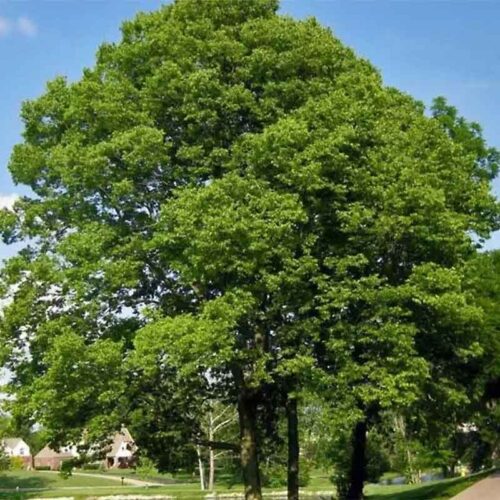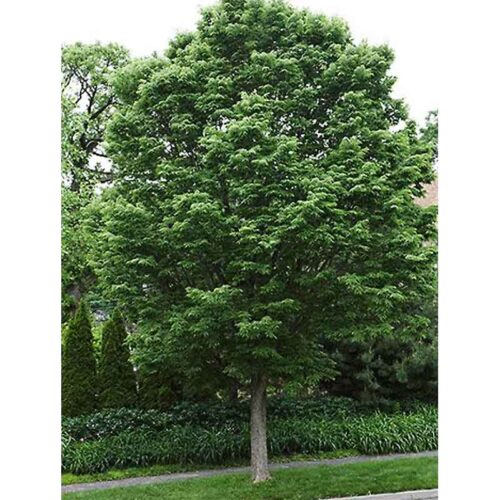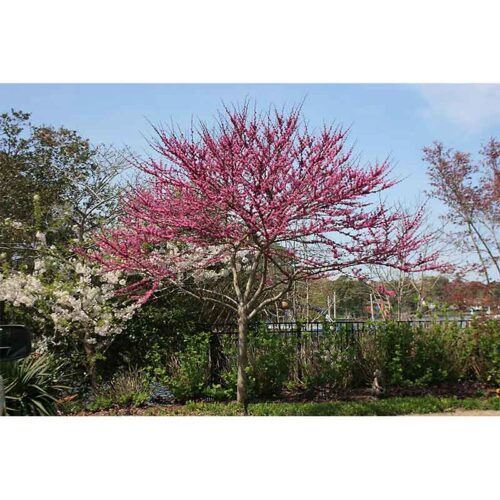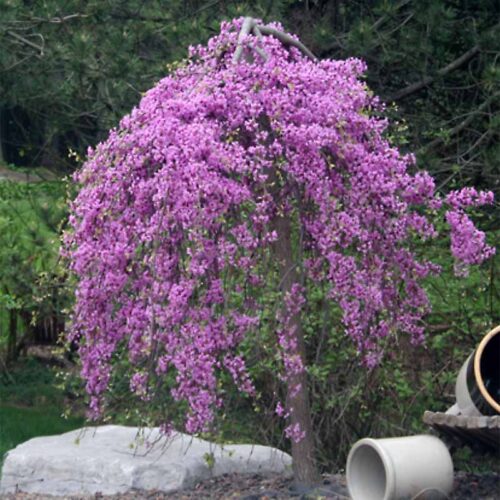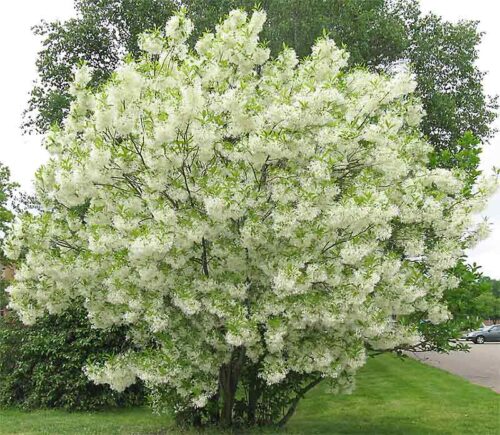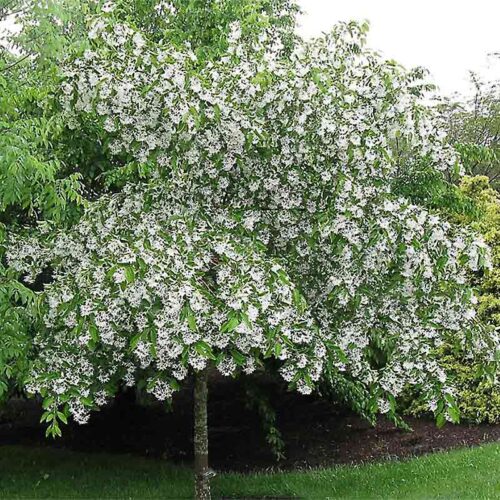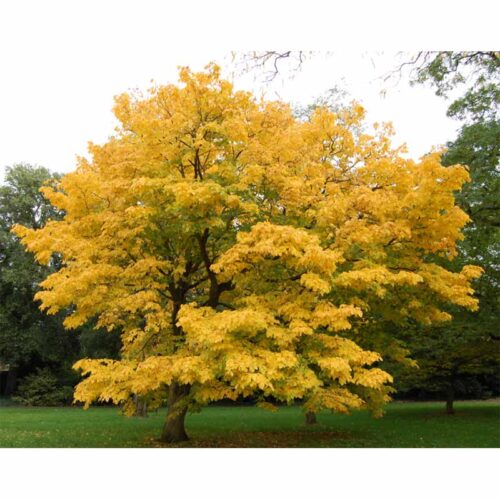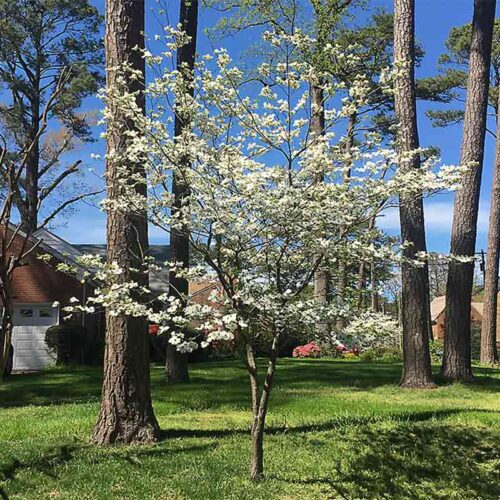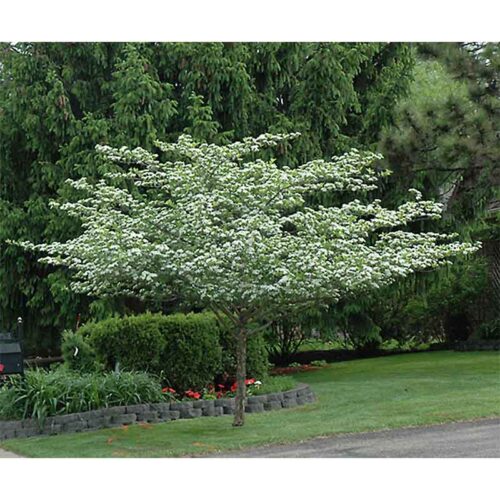-
Carya Illinoinesis – Sumner Pecan
Sumner Pecan Carya Illinoinesis Plant Type: Deciduous, broadleaf, large tree Habit: Upright oval to rounded crown Mature Size: 70’-100’ tall; 40-60’ wide Growth Rate: Slow to moderate Zones: 6-10 Foliage: Medium green ovate leave, nut harvest in the fall Requirements: Well drained, moist soil, full sun Landscape Characteristics: Recommended for planting in southeast USA. Heavy bearing pecan tree. Disease resistant. Beautiful, large shade tree, requires space to grow. Excellent choice for home grown pecans. -
Carpinus Caroliniana – American Hornbeam
American Hornbeam Carpinus caroliniana Plant Type: Deciduous, broadleaf, medium tree Habit: Broad, informal oval crown Mature Size: 20’-35’ tall; 20-35’ wide Growth Rate: Slow to moderate Zones: 3-9 Foliage: Dark green, orange; yellow, red in fall; may persist on tree in winter Requirements: Well drained, moist soil, part to full sun Landscape Characteristics: Specimen hedge, street tree. Small native tree in variable size, shape and fall foliage color. Attractive low maintenance understory tree. -
Celtis laevigata – Southern Hackberry – Sugarberry
Southern Hackberry – Sugarberry Celtis laevigata Plant Type: Deciduous, broadleaf, large shade tree Habit: Upright, arching branches, rounded crown Mature Size: 70′-80’ tall; 60’-80’ wide Growth Rate: Moderate Zones: 6-9 Foliage: Light green ovate, rough textured leaves Fruit: Produces a small orange, sweet tasting fruit in the fall Requirements: Tolerates most soils, drought and salt; part-full sun Landscape Characteristics: Adaptable, versatile native American tree. Tough shade tree or street tree. Seed fruit attracts birds and wildlife. Best planted away from sidewalks or patios, as seeds pose clean-up challenges. Tolerates wind and urban pollutants, moderate salt tolerance. -
Celtis occidentalis – Hackberry
Hackberry Celtis occidentalis Plant Type: Deciduous, broadleaf, large tree Habit: Upright, arching branches, rounded crown Mature Size: 40’-60’ tall; 40’-60’ wide Growth Rate: Moderate Zones: 2-9 Foliage: Light green ovate, rough textured leaves Requirements: Tolerates most soils, drought and salt; part-full sun Landscape Characteristics: Adaptable, versatile native American tree. Tough shade tree or street tree. Seed fruit attracts birds and wildlife. Best planted away from sidewalks or patios, as seeds pose clean-up challenges. Tolerates wind and urban pollutants. -
Cercis canadensis – "Forest Pansy" Redbud
"Forest Pansy" Redbud Cercis canadensis Plant Type: Deciduous, broadleaf, small spring flowering tree Habit: Upright, rounded, may be multi-stemmed Mature Size: 20’-25’ tall; 15’-20’ wide Growth Rate: Moderate Zones: 3-9 Foliage: Heart shaped leaves start scarlet-purple; turn bronze-green; yellow-brown in fall Flower: Showy, abundant, magenta rose blooms in early spring; full sun for best blooms Requirements: Well drained, moist soil, part to full sun Landscape Characteristics: Small spring flowering tree, great in flower beds, residential lawns or paired with other landscape plants. Not suited to wet, flooded soil or street medians. Moderately tolerant of drought and low tolerance to salt. -
Cercis canadensis "Covey" - Lavender Twist Weeping Redbud
Lavender Twist Weeping Redbud Cercis canadensis "Covey" Plant Type: Deciduous, broadleaf, weeping, small spring flowering tree Habit: Weeping branches archto create an umbrella shape Mature Size: 20’-25’ tall; 15’-20’ wide Growth Rate: Moderate Zones: 5-8 Foliage: Heart shaped leaves start scarlet-purple; turn bronze-green; yellow-brown in fall Flower: Showy, abundant, reddish purple buds opens to rosy pink-purple blooms in March-April; full sun for best blooms Requirements: Well drained, moist soil, part to full sun Landscape Characteristics: Small spring flowering tree, great in flower beds, residential lawns or paired with other landscape plants. Not suited to wet, flooded soil or street medians. Moderately tolerant of drought and low tolerance to salt. -
Chionanthus Virginicus – White Fringe Tree Multi-Stem
White Fringe Tree Multi-Stem Chionanthus virginicus Plant Type: Deciduous, broadleaf, small flowering native tree Habit: Upright, open Mature Size: 8’-15’ tall; 6’-10’ wide Growth Rate: Slow Zones: 5-9 Foliage: Elliptical, medium green leaves; yellow-brown in fall Flower: Clouds of fleecy, fragrant, white flowers bloom in spring Requirements: Well drained, moist soil; full sun promotes flowering Landscape Characteristics: Nice paired with other landscape plants. Named the "Best Native Tree Nobody Grows" by Southern Living. Adapts to most soil ph conditions. Small spring statement tree. Moderately tolerant of drought and low tolerance to salt. -
Chionanthus virginicus – White Fringe Tree Single Stem
White Fringe Tree Single Stem Chionanthus virginicus Plant Type: Deciduous, broadleaf, small flowering native tree Habit: Upright, open Mature Size: 8’-15’ tall; 6’-10’ wide Growth Rate: Slow Zones: 5-9 Foliage: Elliptical, medium green leaves; yellow-brown in fall Flower: Clouds of fleecy, fragrant, white flowers bloom in spring Requirements: Well drained, moist soil; full sun promotes flowering Landscape Characteristics: Nice paired with other landscape plants. Named the "Best Native Tree Nobody Grows" by Southern Living. Adapts to most soil ph conditions. Small spring statement tree. Moderately tolerant of drought and low tolerance to salt. -
Cladrastis Kentuka – American Yellowwood
American Yellowwood Cladrastis Kentuka Plant Type: Deciduous, broadleaf, large spring flowering tree Habit: Upright, rounded, irregular Mature Size: 40’-50’ tall; 20’-50’ wide Growth Rate: Slow to moderate Zones: 3-8 Foliage: Compound leaves light to medium green; yellow-green to clear yellow in fall Flower: White 6”-12” panicles bloom in early spring Requirements: Well drained, moist soil, full sun Landscape Characteristics: Specimen or accent spring flowering tree, great for residential lawns or commercial landscapes. Very adaptable to most soil ph conditions as long as it is well drained. Moderately tolerant of drought and low tolerance to salt. -
Cornus hyperion – Hyperion Dogwood
Hyperion Dogwood Cornus hyperion Plant Type: Deciduous, broadleaf, small spring flowering tree Habit: Upright, rounded, irregular Mature Size: 15’-30’ tall; 20’ wide Growth Rate: Moderate to fast Zones: 3-8 Foliage: Medium green leaves; yellow, orange, purple in fall Flower: Large, white flowers bloom in early spring; showy red fruit Requirements: Well drained, moist soil, part shade to full sun Landscape Characteristics: Small spring flowering tree, great in flower beds, residential lawns or paired with other landscape plants. Showy white flowers in spring, berries attract wildlife. Moderately tolerant of drought and low salt tolerance. -
Cerataegus Viridus – "Winter King" Hawthorne
"Winter King" Hawthorne Crataegus viridus Plant Type: Deciduous, broadleaf, small spring flowering tree Habit: Upright, rounded vase shaped Mature Size: 10’-30’ tall; 20’-30’ wide Growth Rate: Moderate Zones: 4-9 Foliage: Med. green glossy leaves; yellow-orange, red, purple in fall Flower: Small, white, round clusters bloom in spring; red fruit Requirements: Well drained, moist soil, full sun for best flowering Landscape Characteristics: Small specimen tree, great in borders, residential lawns or paired with other landscape plants. Used for screening or naturalizing. Branches have thorns so not suited near walkways or playgrounds. Moderate drought and salt tolerance.
Local shipping services
Convenient nursery hours and services
Find the perfect plantings
